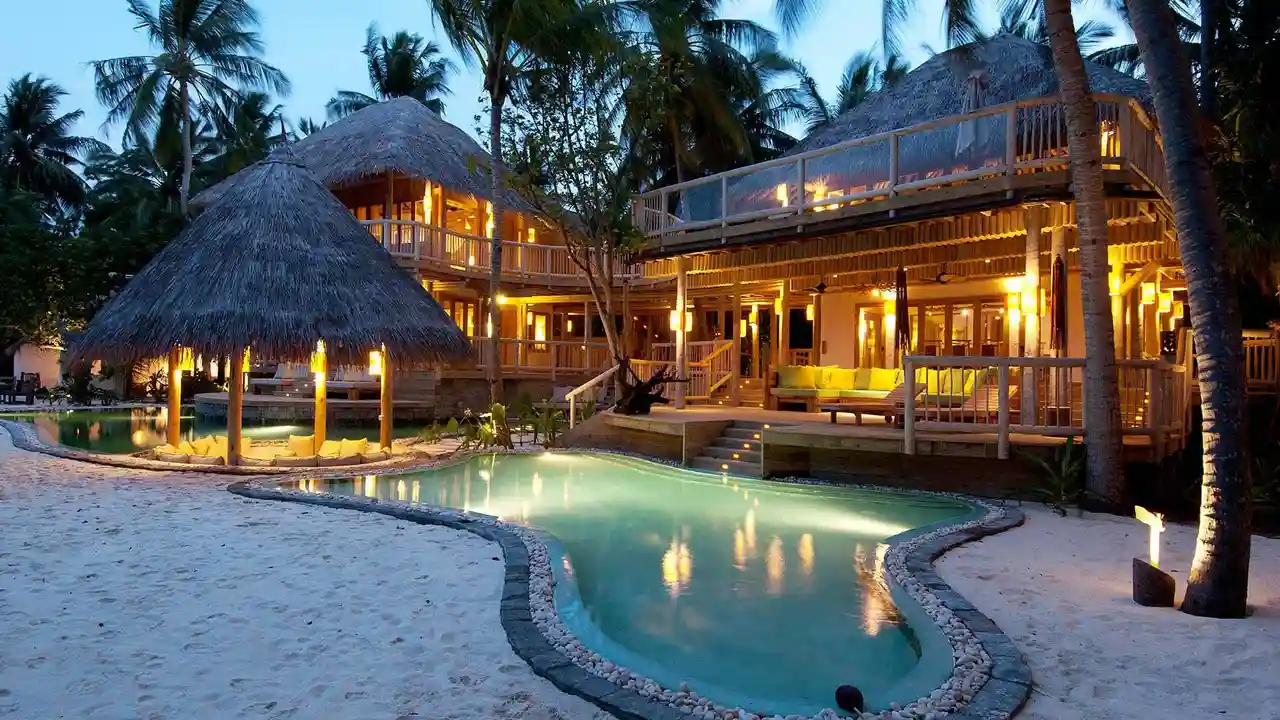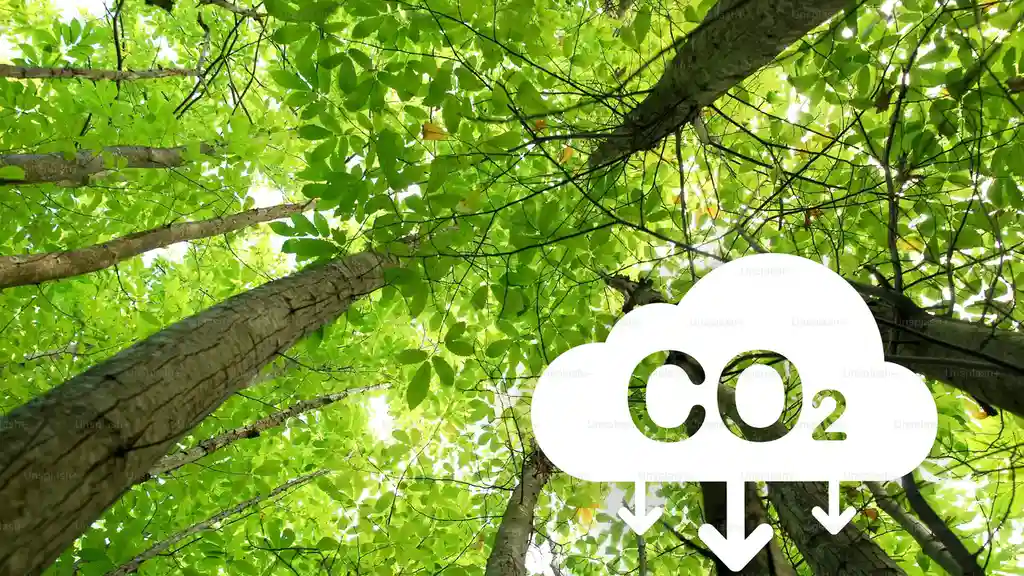Eco Friendly Accommodation Choices
Learn about eco-friendly accommodation options for sustainable travel. Learn about green hotels, eco-lodges, and homestays that prioritize environmental protection. Choose accommodation that aligns with your values.

What Makes Accommodation Eco Friendly Green Hotels Eco Lodges and More
Okay, so you want to travel the world but you also want to be a good human and not trash the planet. Awesome! One of the biggest impacts you can make is by choosing eco-friendly accommodation. But what *exactly* does that mean? It's more than just a cute sign asking you to reuse your towels. Let's dive into what makes a place truly \"green\".
First off, think about energy efficiency. Does the hotel use renewable energy like solar or wind power? Are they using energy-efficient lighting (LEDs are your friend!) and appliances? A truly eco-conscious place will be minimizing its energy consumption. Then there's water conservation. Low-flow showerheads and toilets are a must. They might also have systems for rainwater harvesting or greywater recycling (that's reusing water from showers and sinks for things like watering the garden).
Waste reduction is another biggie. Are they composting food scraps? Do they avoid single-use plastics like miniature shampoo bottles? A good eco-hotel will be actively trying to minimize the amount of waste they send to landfills. And finally, think about their sourcing. Are they using locally sourced food and products? This supports the local economy and reduces the carbon footprint associated with transportation. They might even have their own organic garden!
Green Hotels A Closer Look at Sustainable Hotel Practices
So, what exactly *is* a green hotel? It's a hotel that's committed to reducing its environmental impact in a bunch of different ways. They're not just paying lip service to sustainability; they're actually making changes to their operations. Many green hotels pursue certifications like LEED (Leadership in Energy and Environmental Design) or Green Key, which are third-party verified standards for sustainability. These certifications ensure that the hotel meets certain criteria for energy efficiency, water conservation, waste reduction, and more.
Look for hotels that have implemented energy-saving technologies like smart thermostats, occupancy sensors, and key card activated power. They might also have electric vehicle charging stations for guests. Water conservation efforts could include low-flow fixtures, rainwater harvesting, and greywater recycling. Waste reduction strategies might involve composting, recycling programs, and partnerships with local organizations to donate surplus food. Green hotels often prioritize using eco-friendly cleaning products and toiletries.
Some examples of green hotels in the US include the Proximity Hotel in Greensboro, North Carolina (LEED Platinum certified) and the Hotel Verde in Cape Town, South Africa (a truly impressive example of sustainable design and operation). In Southeast Asia, look for hotels like the Six Senses resorts, which are known for their commitment to sustainability and eco-friendly practices.
Eco Lodges Immersing Yourself in Nature Responsibly
Eco-lodges are a fantastic option for travelers who want to immerse themselves in nature while minimizing their impact. These lodges are typically located in remote or natural areas and are designed to blend in with their surroundings. They often use sustainable building materials and practices and prioritize conservation efforts.
Eco-lodges often have a strong focus on education and conservation. They might offer guided nature walks, wildlife viewing tours, and educational programs about the local ecosystem. They often work closely with local communities to support conservation efforts and promote sustainable tourism. Look for eco-lodges that have been certified by organizations like the Rainforest Alliance or Sustainable Travel International.
One amazing example is the Lapa Rios Ecolodge in Costa Rica. This lodge is located in a private rainforest reserve and is committed to protecting the local biodiversity. Another great option is the Borneo Rainforest Lodge in Malaysia, which offers guests the opportunity to explore the rainforest and learn about the local wildlife.
Homestays Connecting with Local Culture Sustainably
Homestays offer a unique opportunity to connect with local culture and support local communities. When you stay in a homestay, you're typically staying in a private home with a local family. This gives you a chance to learn about their culture, customs, and way of life. It's also a more sustainable option than staying in a large hotel, as it supports the local economy directly.
Look for homestays that are committed to sustainable practices. They might use locally sourced food, conserve water and energy, and support local artisans. Many homestays are listed on platforms like Airbnb, but you can also find them through local tourism organizations or community-based tourism initiatives.
Some great examples of homestays can be found in villages in Southeast Asia. In Vietnam, you can find homestays in the Sapa region where you can experience the culture of the local ethnic minority groups. In Thailand, you can find homestays in rural villages where you can learn about traditional farming practices.
Product Recommendations for Eco Conscious Accommodation
To make your eco-friendly accommodation even *more* sustainable, consider bringing your own eco-friendly travel products. Here are a few recommendations:
- Shampoo Bars and Conditioner Bars: Ditch the plastic bottles and switch to shampoo and conditioner bars. They're lightweight, TSA-friendly, and last a long time. Brands like Ethique and Lush offer a wide variety of options. Prices range from $15-$25 per bar. Use case: Perfect for all types of travel, especially carry-on only trips.
- Reusable Water Bottle: A must-have for any traveler. Choose a durable and lightweight bottle made from stainless steel or glass. Brands like Hydro Flask and Klean Kanteen are popular choices. Prices range from $25-$50. Use case: Stay hydrated on the go and avoid single-use plastic bottles.
- Reusable Food Storage Bags: Avoid using plastic bags for snacks and leftovers. Opt for reusable silicone bags or beeswax wraps. Brands like Stasher and Abeego offer great options. Prices range from $10-$20 per bag. Use case: Pack snacks for your travels and store leftovers from restaurants.
- Bamboo Toothbrush: A sustainable alternative to plastic toothbrushes. Bamboo is a fast-growing and renewable resource. Brands like Brush with Bamboo and The Humble Co. offer bamboo toothbrushes. Prices range from $5-$10 per toothbrush. Use case: Brush your teeth guilt-free knowing you're not contributing to plastic waste.
- Travel Towel: A lightweight and quick-drying travel towel made from microfiber or bamboo. Brands like Tesalate and PackTowl offer great options. Prices range from $20-$40. Use case: Perfect for hostels, camping, and beach trips.
Comparing Accommodation Options Choosing What's Right for You
So, which type of eco-friendly accommodation is right for you? It depends on your travel style, budget, and preferences. Green hotels offer a comfortable and convenient option with a focus on sustainability. Eco-lodges offer an immersive experience in nature with a strong focus on conservation. Homestays offer a chance to connect with local culture and support local communities.
Consider your priorities when making your decision. If you're looking for luxury and convenience, a green hotel might be the best option. If you're looking for adventure and immersion in nature, an eco-lodge might be a better fit. If you're looking to connect with local culture and support local communities, a homestay is a great choice.
Finding Eco Friendly Accommodation Resources and Tips
Finding eco-friendly accommodation can take a little extra effort, but it's worth it! Start by searching online for \"green hotels,\" \"eco-lodges,\" or \"sustainable homestays\" in your destination. Look for accommodations that have been certified by reputable organizations like LEED, Green Key, Rainforest Alliance, or Sustainable Travel International.
Read reviews from other travelers to get a sense of the accommodation's sustainability practices. Contact the accommodation directly to ask about their environmental initiatives. Look for accommodations that are transparent about their sustainability efforts and are committed to continuous improvement.
By choosing eco-friendly accommodation, you can make a positive impact on the environment and support local communities. You can travel responsibly and enjoy your trip knowing that you're doing your part to protect the planet.
:max_bytes(150000):strip_icc()/277019-baked-pork-chops-with-cream-of-mushroom-soup-DDMFS-beauty-4x3-BG-7505-5762b731cf30447d9cbbbbbf387beafa.jpg)






